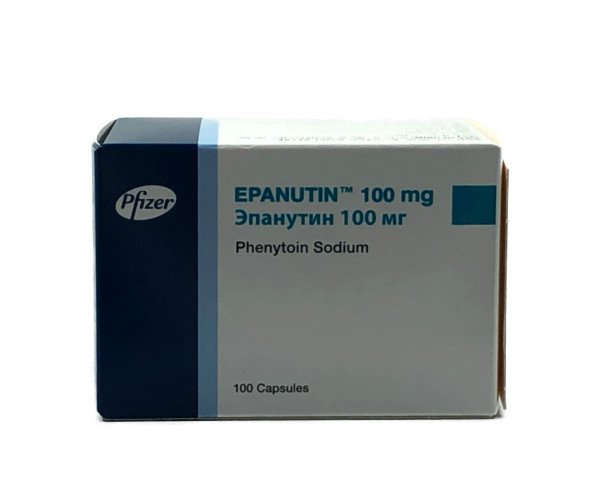Epanutin / Dilantin (phenytoin) is an anticonvulsant medication that can reduce the frequency and intensity of epileptic seizures. Phenytoin works to prevent excessive electrical activity in the brain by preventing sodium from entering nerve cells when they begin to fire rapid and repetitive electrical signals.
In normal nerve signalling, some build up of sodium in the junctions of nerve cells is necessary for the electrical signal to be passed on to other nerve cells. Excessive levels of sodium can cause spikes in electrical activity and trigger a seizure. Phenytoin can prevent this build-up, so it helps to stabilize electrical activity in the brain. It is not a cure for epilepsy, and only reduces the frequency and intensity of seizures.
Dosage
Take the medication exactly as prescribed. Do not stop taking Epanutin abruptly without consulting the doctor. Abrupt discontinuation of Epanutin may result in an increased incidence of seizures or a seizure attack that does not stop (status epilepticus).
The dosage and regimen can only be set by a doctor. Try to take the medicine at the same time each day. If a dose is forgotten, take it as soon as this is realized, as long as it is on the same day. Do not double-dose to make up for a missed dose.
Avoid taking Epanutin at the same time as antacids such as calcium carbonate, aluminum hydroxide, or magnesium
hydroxide (Mylanta, Gelusil, Calci-Chew, etc.)
A woman of childbearing age should use effective contraceptives while using Epanutin. A fetus is at risk of severe congenital defects, and the level of phenytoin may decrease in a woman who becomes pregnant during treatment with Epanutin, increasing the risk of seizures.
This text is for informational purposes only. Please consult a doctor or pharmacist before using any medication.
Read the information leaflet that comes with the medication.
Most people who use Epanutin do not experience any negative side effects. Doctors prescribe Epanutin because they assess that the benefits that such treatment yields outweighs any likely unwanted effects.
If a sudden allergic reaction (anaphylaxis) such as swelling of the face, tongue or throat makes it difficult to breathe or swallow, or there is wheezing, hives, rash, blistering or peeling of the skin, call a doctor or 911 right away, or go to an emergency room immediately.
Some of the side effects that have been reported include nausea, vomiting, constipation, dizziness, fever, headache, tremor, muscle weakness or pain, joint pain, mild drowsiness, confusion, mild nervousness, irregular movement of the eye (nystagmus), disturbances of speech, gait or coordination, involuntary movements, taste disturbances, or tingling sensations.
Not all side effects are listed here. If these or other unlisted symptoms persist or worsen, consult a healthcare provider or pharmacist.
Epanutin /Dilantin can be prescribed for children and adults who are subject to generalized tonic-clonic and complex partial epileptic seizures. It is not a cure for epilepsy, but can reduce the frequency and intensity of seizures.













